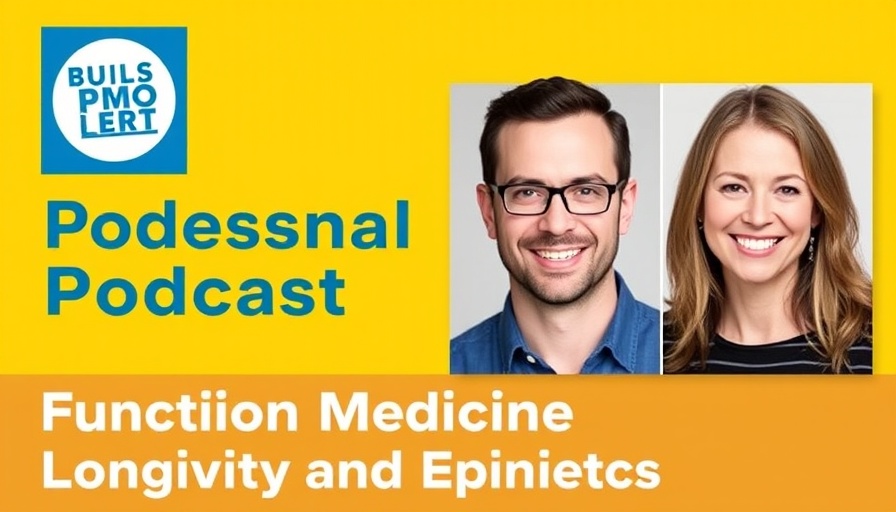
Understanding Fluoride: A Dual Perspective on Benefits and Risks
Fluoride is a topic that has sparked diverse opinions ranging from enthusiastic endorsements by dental organizations to skepticism from concerned citizens and healthcare professionals. In the realm of functional medicine, it's vital to navigate these waters carefully—examining not just population benefits, but also potential individual risks, particularly when it comes to neurodevelopment in children.
The Role of Fluoride in Dental Health
Proponents of fluoridation—like the American Academy of Pediatrics and Centers for Disease Control and Prevention—argue that fluoride significantly reduces dental decay. This has resulted in a remarkable decline in cavities since its introduction in the mid-20th century. With approximately 73% of Americans receiving fluoridated water, the public health message has been largely one of reassurance: fluoride is safe and effective.
However, the key question here is: at what cost? Recent research suggests that, while fluoride may help in preventing cavities, accumulated exposure, especially in young children, could have unforeseen neurodevelopmental consequences. This creates a critical gap in understanding that both healthcare professionals and families need to address.
Potential Sources of Exposure
Fluoride is ubiquitous, not only found in water but also in dental products like toothpaste, rinses, and varnishes that often exceed the concentration levels found in municipal water supplies. In fact, many children ingest significant amounts of fluoride from these sources—potentially leading to fluorosis, which manifests as discolored teeth. It's not just the acute toxic doses we need to be wary of, but rather the cumulative exposure that could pose serious health risks over time.
Exploring the Link Between Fluoride and IQ
A focal point of recent studies involves understanding whether or how fluoride exposure negatively influences IQ levels in children. Research spanning various demographics has shown a concerning association—those with higher fluoride levels in their system may exhibit lower IQ scores. This insight raises alarms, particularly for parents in the Gig Harbor area who are gearing towards natural healing solutions to proactively support their children's health.
What Should Patients Ask Their Functional Medicine Doctors?
For prospective customers of naturopathic and functional medicine practices in Gig Harbor, finding a functional medicine doctor means prioritizing individual health profiles and histories. Patients are encouraged to engage their healthcare providers with questions surrounding fluoride exposure, including:
- How does fluoride affect my family’s health?
- What alternative dental health strategies could we consider?
- How can we mitigate exposure to fluoride?
These questions not only cater to immediate concerns but also support a broader understanding of health that integrates well-being, immunity, and balanced hormones.
Your Path to Wellness in Gig Harbor
Your health choices matter. Adopting an integrative approach that questions the status quo, much like the stirring debates surrounding fluoride, empowers patients to take charge of their health. If you're in Gig Harbor and are seeking a naturopath specializing in holistic and root cause medicine, consider reaching out to local experts who can guide you toward making informed choices for you and your family.
Fluoride may be part of our public health landscape, but being well-informed about its potential risks can create a healthier future for our communities. Seek a qualified professional to help you navigate these complex discussions.
 Add Row
Add Row  Add
Add 




Write A Comment